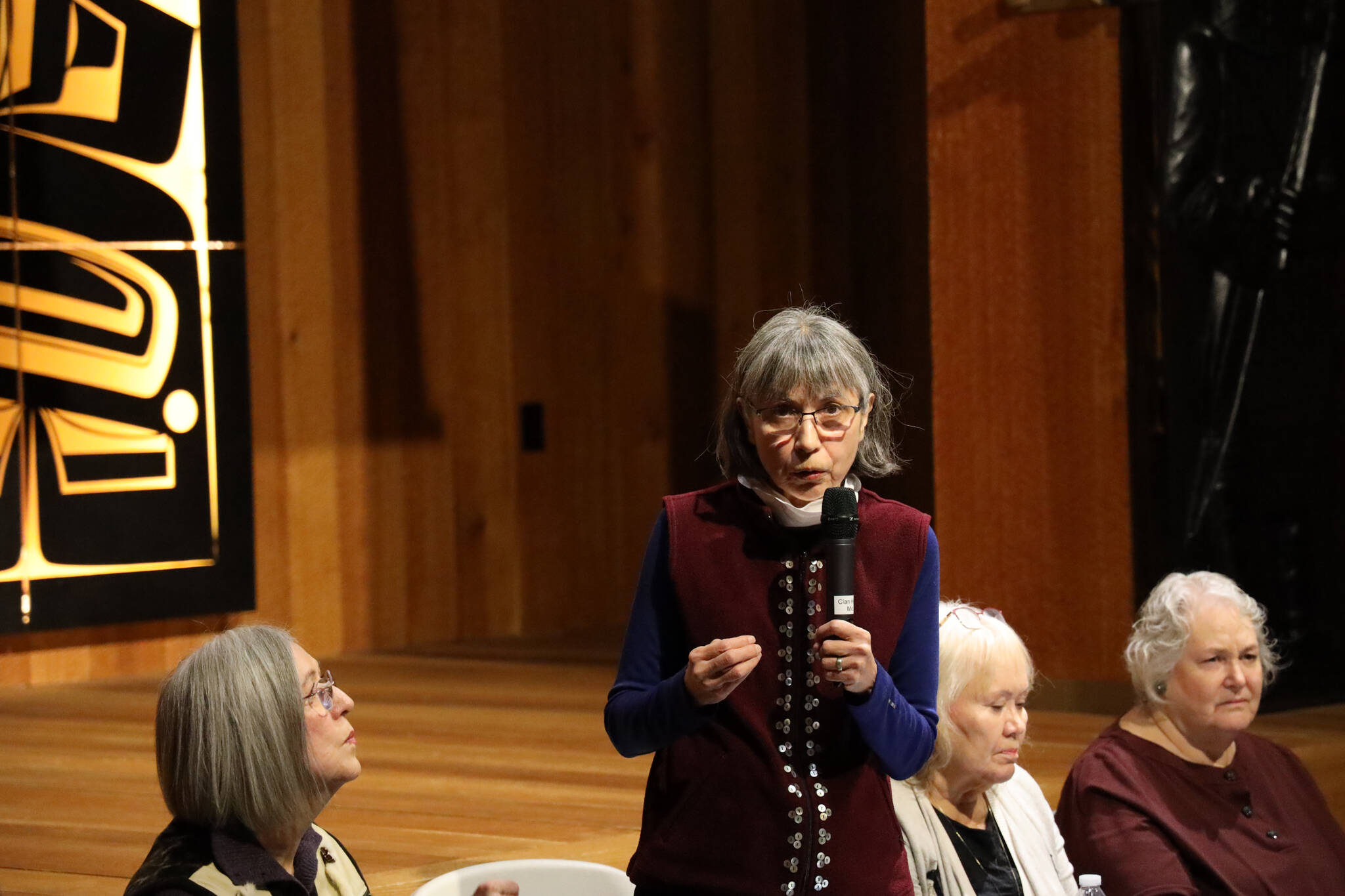Presbyterian minister and Tlingit trailblazer Walter Soboleff had no choice but to watch as his church changed from a thriving center for Juneau’s Alaska Native community into a pile of rubble. But six decades later, the wrongs that led to that change are being reckoned with.
“The story of the Memorial Presbyterian Church is a small example of the consequences of racism, but it is a powerful story,” said Myra Munson, co-chair of the Kuneix Hidí Northern Light United Church’s healing committee, during a Walter Soboleff Day presentation in the Walter Soboleff Building. “It can, and has, emboldened others to tell their own story and shine a light of history that lived in the shadows of denial.”
The church was closed in 1962 after the Alaska Presbytery and National Board of Missions inexplicably demanded the closure of the church he had led for more than two decades.
However, after decades of silence, reparations are in the works for the damage caused by the baseless closure, according to the Kuneix Hidí Northern Light United Church, Northwest Coast Presbytery and Presbyterian Church U.S.A.
Members of the Kuneix Hidí Northern Light United Church’s Native Ministries Committee on Monday — a state holiday named in Soboleff’s honor — shared the recent steps the church has taken to amend past actions that were motivated by racial discrimination and the assimilation of Juneau’s Alaska Native population.
In 1940, Soboleff became the Presbyterian Church’s first Alaska Native ordained minister and took on the role as pastor of Juneau’s Memorial Presbyterian Church, where he turned the once empty place of worship into a vibrant community pillar among Juneau’s Alaska Native population.
There, he invited all people of Juneau to worship, and he preached in both English and the Tlingit language. Soboleff’s impact was wide-reaching and brought hope to many Alaska Native villages in Southeast Alaska where he traveled to share his message.
However, when the church’s closure was announced, Soboleff had no answer to give to his church’s congregation as he was given no answer himself, which left him and many members in great anguish, according to Sealaska Heritage Institute. Soboleff had served as SHI’s chair. Soboleff continued to share his message even without a church for decades before he died in 2011 at 102, but he never received a formal apology from the Presbyterian church for the closure. However, a movement toward one is now underway according to Kuneix Hidí Northern Light United Church’s Native Ministries members who spoke at the event Monday.
“Saying sorry is just not enough — we have to actually do things,” said Myra Munson, Overture Subcommittee Member.
In the presentation, the church’s Native Ministries Committee outlined an overture it developed in 2021, which analyzed and openly outlined the injustices and racially charged motives that led to the closure of Soboleff’s church by the Presbyterian Church.
As outlined in the presentation, in late June of this year, the church successfully brought its overture to the Presbyterian national Office of the General Assembly where it was approved, and a formal apology is expected to be announced on the 2023 Indigenous Peoples Day in October and will include $370,000 in restitution which can be put toward things like providing scholarships and funds to Indigenous churches around the country.
The group said there will be more information regarding the formal apology before the expected announcement in October 2023.
“The overture is a call for healing, a call for apology,” said Lillian Petershoare, council liaison to the Native Ministries Committee and co-leader of the Overture Subcommittee. “To listen to those most impacted.”
Petershoare said though the apology is long overdue, she hopes it can provide healing to those still affected by the church’s closure and shed more light on the injustices that still linger untouched in Juneau’s past that need to be addressed.
“It’s important that this story comes out,” Petershoare said. “If you don’t deal with these issues from the past, how can we be a respectful community with one another now? We have to look at the past and we have to address it and bring about healing.”
Barbara Searls, chairperson of the Native Ministries Committee and overture advocate, said education is the first step for the community to heal and she said she hopes the overture can serve as a jumping-off point for more understanding and reparation to begin in both the Southeast Alaska community and other Indigenous communities that have been negatively impacted by the Presbyterian Church.
“Now that we got the overture adopted, now the work really begins,” she said. “I hope that those people who have been affected by the church closure will learn more about what we’re doing to get healing in the community.”
Contact reporter Clarise Larson at clarise.larson@juneauempire.com or (651)-528-1807. Follow her on Twitter at @clariselarson.


